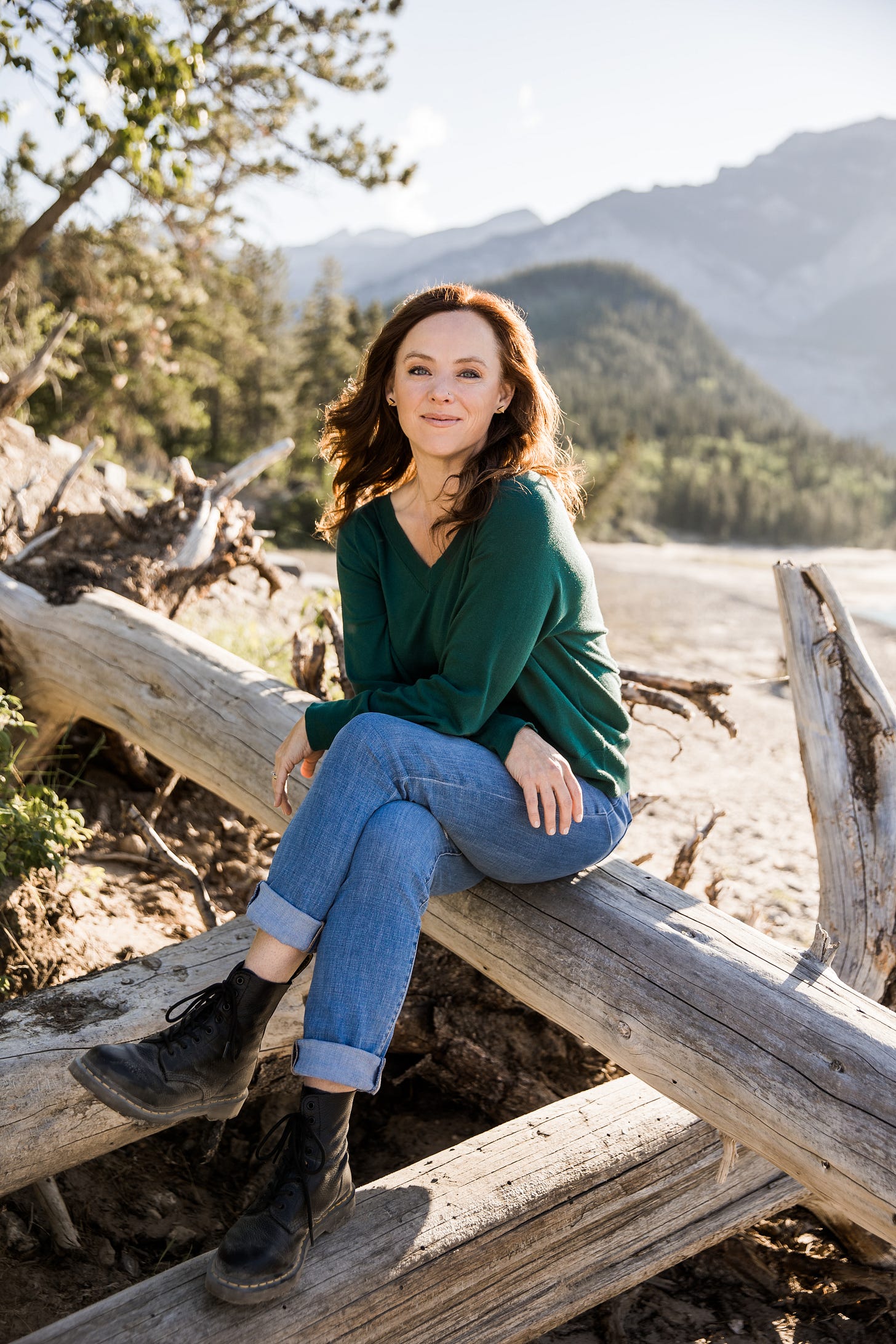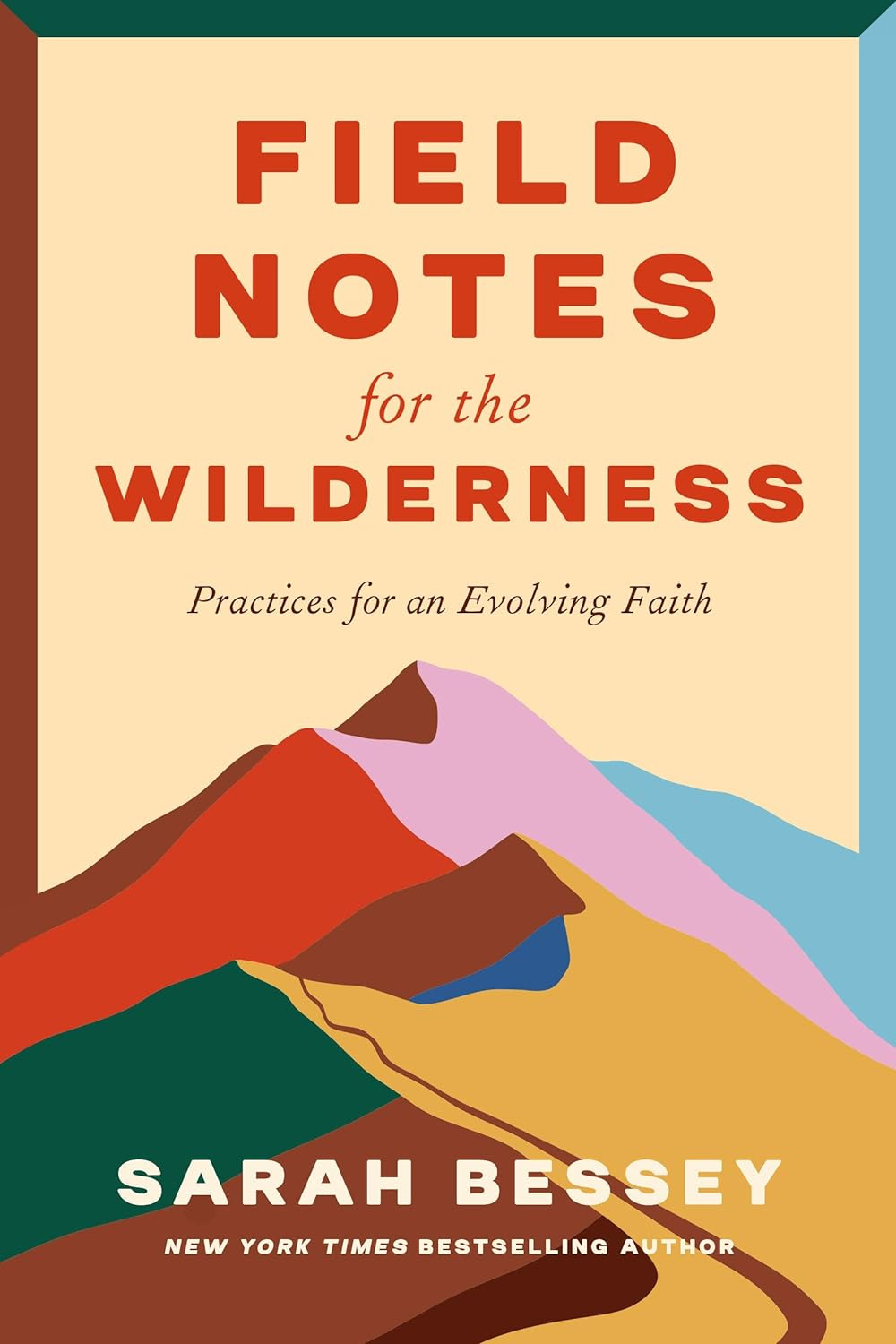The Particular
an essay on love, by Sarah Bessey
This guest essay is adapted from Sarah’s new book, Field Notes For The Wilderness.
Learn to Love the World Again
A few years ago at the height of the pandemic’s lockdown, I took my children to the edge of the lake in the mountains on another day of snowfall. It was an iron-gray day, alternating between rain and snow right at the freezing point. We threw rocks into the cold water just for the satisfaction of a splash. There was a dead duck at the shoreline, and the kids marveled over it in fascinated revulsion before moving on. The clouds reclined on the hillside. Just that morning,
I had been reading poet Maggie Smith and so thought of her line “I’m desperate for you to love the world because I brought you here” 1 as we stood at the edge of the water, my kids’ laughter and joy at the fresh air rising after days cooped up inside. Maggie Smith’s words became my heartbeat prayer for them: love this world, love this world, please love it here.1
Perhaps part of what ails us now is that we’ve forgotten how to love the world. Not just each other in the broad and general sense but this actual world, the ground upon which we stand, the place where we lay our heads, the people whom we see right before us.
In his letter to the Ephesians, Paul writes, Watch what God does, and then you do it, like children who learn proper behavior from their parents. Mostly what God does is love you. Keep company with him and learn a life of love. Observe how Christ loved us. His love was not cautious but extravagant. He didn’t love in order to get something from us but to give everything of himself to us. Love like that.2
Watch what God does, eh? And here is what I do know about what God does: God so loves the world.
God loves the world, every blade of grass, every grunt and squeal of creatures, every kid who goes to sleep worried about something, every burning bush, every lullaby that we sing. All of it, all of us, held in that extravagant sacrificial love. Mostly what God does is love you. Keep company with God and learn a life of love. Learn what a gift it is to be here, alive in your life.
The call to learn to love the world again is a call to engage with all of those Big Things, of course—love never makes us smaller and narrower and lonelier, it never shuts us off and away from longing and hunger. But I wonder what it would be like to love the world again so much that we are unable to ignore climate change because the world is crying out for us to love her again.
What would it be like to love the world so much that we believe women and protect children?
What would it be like to love the world so much that we see the image of God in one another across aisles and streets and political divides and borders and the ones we have been taught to fear and resent?
What would it look like to remember how to love the world again even knowing it will break your heart?
Loving is a worthwhile risk, a shot in the dark that illuminates everything, a radical act of faith and hope. Even in this we are invited to be in step with the God who consents to having Their heart broken and yet runs extravagantly into this world. For God so loved the world, for God so loved the world, for God so loved the world.
People love to quote John 3:16—including me, I quoted it just above here—but I’ve also become partial to the next verse: “For God did not send his Son into the world to condemn the world, but to save the world through him.”
For God so loved this broken, longing, beautiful, terrified, burning, glorious, spinning world. We have been brought here for love by love for love in love. Maybe God is desperate for us to love sit, too…
Love in Particular
Remembering how to love the world while still in the midst of our own evolution is complicated.
We don’t need a resolute beam of positive thinking and encouraging chirps about silver linings.
Those sentiments—a cotton candy theology of survival—melted long ago. You know this. You have likely learned it the hard way.
But what would it be like to love the world not in general but in particular? Pay attention, be mindful of loving this particular world and your particular people and your particular place and your particular self. Love is not cautious but extravagant and specific.
I’ve found—entirely by accident—that the practice of loving this in particular a few times a day is actually functioning as both an invocation and a benediction. Learning to love this in particular—whatever this means in that moment—invites the presence of God (or at least my awareness of it) and blesses as sacred where God already dwells. This has been a nice surprise.
And so I’ve landed here right now: remembering to love this in particular.
Love the pencil crayons and markers always on the kitchen table. Love the curl of steam from the tea in the morning, love the light in the late afternoon illuminating the crumbs on the floor as holy.
Love the pencil crayons and markers always on the kitchen table. Love the curl of steam from the tea in the morning, love the light in the late afternoon illuminating the crumbs on the floor as holy. Love underlined poems and the sight of birds on the wind. Love the noise of the streets and the bass line in that one song, you know it. Love the donate button on a food bank website and the satisfying click of finding some small way to keep loving your neighbors. Love your body, every curve and change.
Love the sound of the words “I love you,” “I forgive you,” “I’m sorry,” “I miss you,” “I choose you,”
“I made coffee and it’s ready.” Love the bark of the big old tree you watch through every season of change.
Love this moment of particular grace, not in spite of all the grief and loss surrounding us but because of it. Love this because now you know that Frederick Buechner was right: this is the world, beautiful and terrible things will happen. Don’t be afraid.
Beautiful things are happening and terrible things are happening, both are true. Don’t be afraid.
Are you remembering to find something, in particular, to love even during this wandering season? There is so much to love, especially out here, right here.
Love something in particular,
S.
About Sarah Bessey
Sarah Bessey is the author or editor of five books, including the New York Times bestseller A Rhythm of Prayer. This essay is adapted from her new book, Field Notes for the Wilderness: Practices for an Evolving Faith. She also leads Evolving Faith, a conference and online community for people who are reimagining their faith with hope. Sarah lives in Calgary, Alberta, Canada with her husband and their four kids. You can find her online at sarahbessey.com.
Maggie Smith, “First Fall,” in Good Bones (North Adams, Mass.: Tupelo Press, 2017), p. 4.
Ephesians 5:1–2 MSG.






Now instead of recapping each day by my highs and lows, I will ask myself, how have I loved today?
And now we have YOU, in particular, to thank for this marvelous insight into the nature and purpose of love. And now, I must go to feed His sheep...